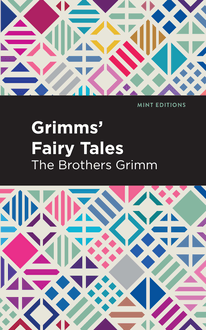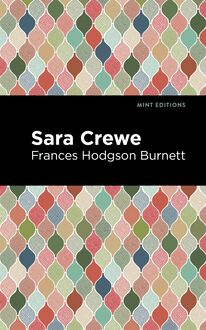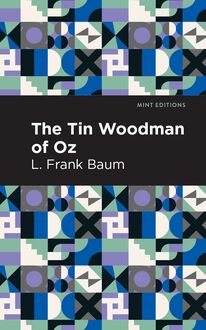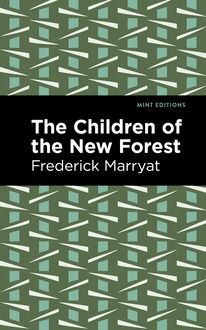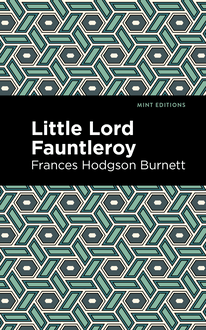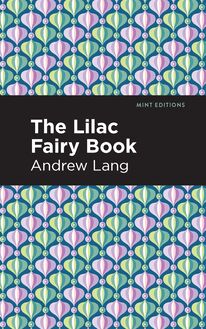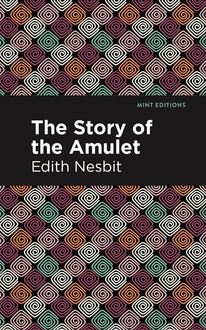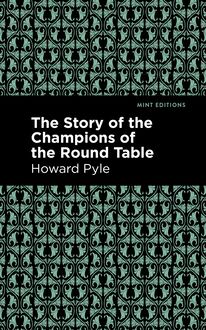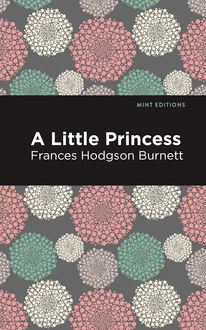-
 Univers
Univers
-
 Ebooks
Ebooks
-
 Livres audio
Livres audio
-
 Presse
Presse
-
 Podcasts
Podcasts
-
 BD
BD
-
 Documents
Documents
-
- Cours
- Révisions
- Ressources pédagogiques
- Sciences de l’éducation
- Manuels scolaires
- Langues
- Travaux de classe
- Annales de BEP
- Etudes supérieures
- Maternelle et primaire
- Fiches de lecture
- Orientation scolaire
- Méthodologie
- Corrigés de devoir
- Annales d’examens et concours
- Annales du bac
- Annales du brevet
- Rapports de stage
La lecture à portée de main
Vous pourrez modifier la taille du texte de cet ouvrage
Découvre YouScribe en t'inscrivant gratuitement
Je m'inscrisDécouvre YouScribe en t'inscrivant gratuitement
Je m'inscrisEn savoir plus
Vous pourrez modifier la taille du texte de cet ouvrage
En savoir plus

Description
Little Lord Fauntleroy is a classic novel following the unexpected journey of a young boy from his working-class home to the halls of European royalty. Young Cedric is the long lost grandson of an Earl who’s suddenly called to take his place among his rich relatives. Cedric Errol’s late father was the estranged son of the Earl of Dorincourt. He and his family lived in the United States with no connection to his royal heritage. One day, Cedric and his mother are notified by an English lawyer that he is the heir to a massive fortune. Following the deaths of his sons, the Earl of Dorincourt names Cedric the new Lord Fauntleroy. He is required to move to Europe and be groomed for aristocratic life. The boy faces many challenges including a greedy imposter eager to steal his inheritance. Francis Burnett’s enduring tale was a major success upon its initial release. It spawned multiple adaptations including two feature films from 1936 and 1980, respectively. Little Lord Fauntleroy is a children’s favorite that’s left an indelible mark on the genre. With an eye-catching new cover, and professionally typeset manuscript, this edition of Little Lord Fauntleroy is both modern and readable.
Sujets
Informations
| Publié par | Mint Editions |
| Date de parution | 07 mai 2021 |
| Nombre de lectures | 0 |
| EAN13 | 9781513275338 |
| Langue | English |
| Poids de l'ouvrage | 1 Mo |
Informations légales : prix de location à la page 0,0400€. Cette information est donnée uniquement à titre indicatif conformément à la législation en vigueur.
Extrait
Little Lord Fauntleroy
Frances Hodgson Burnett
Little Lord Fauntleroy was first published in 1862.
This edition published by Mint Editions 2021.
ISBN 9781513270333 | E-ISBN 9781513275338
Published by Mint Editions®
minteditionbooks.com
Publishing Director: Jennifer Newens
Design & Production: Rachel Lopez Metzger
Typesetting: Westchester Publishing Services
C ONTENTS I II III IV V VI VII VIII IX X XI XII XIII XIV XV
I
C edric himself knew nothing whatever about it. It had never been even mentioned to him. He knew that his papa had been an Englishman, because his mamma had told him so; but then his papa had died when he was so little a boy that he could not remember very much about him, except that he was big, and had blue eyes and a long mustache, and that it was a splendid thing to be carried around the room on his shoulder. Since his papa’s death, Cedric had found out that it was best not to talk to his mamma about him. When his father was ill, Cedric had been sent away, and when he had returned, everything was over; and his mother, who had been very ill, too, was only just beginning to sit in her chair by the window. She was pale and thin, and all the dimples had gone from her pretty face, and her eyes looked large and mournful, and she was dressed in black.
“Dearest,” said Cedric (his papa had called her that always, and so the little boy had learned to say it),—“dearest, is my papa better?”
He felt her arms tremble, and so he turned his curly head and looked in her face. There was something in it that made him feel that he was going to cry.
“Dearest,” he said, “is he well?”
Then suddenly his loving little heart told him that he’d better put both his arms around her neck and kiss her again and again, and keep his soft cheek close to hers; and he did so, and she laid her face on his shoulder and cried bitterly, holding him as if she could never let him go again.
“Yes, he is well,” she sobbed; “he is quite, quite well, but we—we have no one left but each other. No one at all.”
Then, little as he was, he understood that his big, handsome young papa would not come back any more; that he was dead, as he had heard of other people being, although he could not comprehend exactly what strange thing had brought all this sadness about. It was because his mamma always cried when he spoke of his papa that he secretly made up his mind it was better not to speak of him very often to her, and he found out, too, that it was better not to let her sit still and look into the fire or out of the window without moving or talking. He and his mamma knew very few people, and lived what might have been thought very lonely lives, although Cedric did not know it was lonely until he grew older and heard why it was they had no visitors. Then he was told that his mamma was an orphan, and quite alone in the world when his papa had married her. She was very pretty, and had been living as companion to a rich old lady who was not kind to her, and one day Captain Cedric Errol, who was calling at the house, saw her run up the stairs with tears on her eyelashes; and she looked so sweet and innocent and sorrowful that the Captain could not forget her. And after many strange things had happened, they knew each other well and loved each other dearly, and were married, although their marriage brought them the ill-will of several persons. The one who was most angry of all, however, was the Captain’s father, who lived in England, and was a very rich and important old nobleman, with a very bad temper and a very violent dislike to America and Americans. He had two sons older than Captain Cedric; and it was the law that the elder of these sons should inherit the family title and estates, which were very rich and splendid; if the eldest son died, the next one would be heir; so, though he was a member of such a great family, there was little chance that Captain Cedric would be very rich himself.
But it so happened that Nature had given to the youngest son gifts which she had not bestowed upon his elder brothers. He had a beautiful face and a fine, strong, graceful figure; he had a bright smile and a sweet, gay voice; he was brave and generous, and had the kindest heart in the world, and seemed to have the power to make every one love him. And it was not so with his elder brothers; neither of them was handsome, or very kind, or clever. When they were boys at Eton, they were not popular; when they were at college, they cared nothing for study, and wasted both time and money, and made few real friends. The old Earl, their father, was constantly disappointed and humiliated by them; his heir was no honor to his noble name, and did not promise to end in being anything but a selfish, wasteful, insignificant man, with no manly or noble qualities. It was very bitter, the old Earl thought, that the son who was only third, and would have only a very small fortune, should be the one who had all the gifts, and all the charms, and all the strength and beauty. Sometimes he almost hated the handsome young man because he seemed to have the good things which should have gone with the stately title and the magnificent estates; and yet, in the depths of his proud, stubborn old heart, he could not help caring very much for his youngest son. It was in one of his fits of petulance that he sent him off to travel in America; he thought he would send him away for a while, so that he should not be made angry by constantly contrasting him with his brothers, who were at that time giving him a great deal of trouble by their wild ways.
But, after about six months, he began to feel lonely, and longed in secret to see his son again, so he wrote to Captain Cedric and ordered him home. The letter he wrote crossed on its way a letter the Captain had just written to his father, telling of his love for the pretty American girl, and of his intended marriage; and when the Earl received that letter he was furiously angry. Bad as his temper was, he had never given way to it in his life as he gave way to it when he read the Captain’s letter. His valet, who was in the room when it came, thought his lordship would have a fit of apoplexy, he was so wild with anger. For an hour he raged like a tiger, and then he sat down and wrote to his son, and ordered him never to come near his old home, nor to write to his father or brothers again. He told him he might live as he pleased, and die where he pleased, that he should be cut off from his family forever, and that he need never expect help from his father as long as he lived.
The Captain was very sad when he read the letter; he was very fond of England, and he dearly loved the beautiful home where he had been born; he had even loved his ill-tempered old father, and had sympathized with him in his disappointments; but he knew he need expect no kindness from him in the future. At first he scarcely knew what to do; he had not been brought up to work, and had no business experience, but he had courage and plenty of determination. So he sold his commission in the English army, and after some trouble found a situation in New York, and married. The change from his old life in England was very great, but he was young and happy, and he hoped that hard work would do great things for him in the future. He had a small house on a quiet street, and his little boy was born there, and everything was so gay and cheerful, in a simple way, that he was never sorry for a moment that he had married the rich old lady’s pretty companion just because she was so sweet and he loved her and she loved him. She was very sweet, indeed, and her little boy was like both her and his father. Though he was born in so quiet and cheap a little home, it seemed as if there never had been a more fortunate baby. In the first place, he was always well, and so he never gave any one trouble; in the second place, he had so sweet a temper and ways so charming that he was a pleasure to every one; and in the third place, he was so beautiful to look at that he was quite a picture. Instead of being a bald-headed baby, he started in life with a quantity of soft, fine, gold-colored hair, which curled up at the ends, and went into loose rings by the time he was six months old; he had big brown eyes and long eyelashes and a darling little face; he had so strong a back and such splendid sturdy legs, that at nine months he learned suddenly to walk; his manners were so good, for a baby, that it was delightful to make his acquaintance. He seemed to feel that every one was his friend, and when any one spoke to him, when he was in his carriage in the street, he would give the stranger one sweet, serious look with the brown eyes, and then follow it with a lovely, friendly smile; and the consequence was, that there was not a person in the neighborhood of the quiet street where he lived—even to the groceryman at the corner, who was considered the crossest creature alive—who was not pleased to see him and speak to him. And every month of his life he grew handsomer and more interesting.
When he was old enough to walk out with his nurse, dragging a small wagon and wearing a short white kilt skirt, and a big white hat set back on his curly yellow hair, he was so handsome and strong and rosy that he attracted every one’s attention, and his nurse would come home and tell his mamma stories of the ladies who had stopped their carriages to look at and speak to him, and of how pleased they were when he talked to them in his cheerful little way, as if he had known them always. His greatest charm was this cheerful, fearless, quaint little way of making friends with people. I think it arose from his having a very confiding nature, and a kind little heart that sympathized with every one, and wished to make every one as comfortable as he liked to be himself. It made him very quick to understand the feelings of those about him. Perhaps this had grown on him, too, because he had lived so much
-
 Univers
Univers
-
 Ebooks
Ebooks
-
 Livres audio
Livres audio
-
 Presse
Presse
-
 Podcasts
Podcasts
-
 BD
BD
-
 Documents
Documents
-
Jeunesse
-
Littérature
-
Ressources professionnelles
-
Santé et bien-être
-
Savoirs
-
Education
-
Loisirs et hobbies
-
Art, musique et cinéma
-
Actualité et débat de société
-
Jeunesse
-
Littérature
-
Ressources professionnelles
-
Santé et bien-être
-
Savoirs
-
Education
-
Loisirs et hobbies
-
Art, musique et cinéma
-
Actualité et débat de société
-
Actualités
-
Lifestyle
-
Presse jeunesse
-
Presse professionnelle
-
Pratique
-
Presse sportive
-
Presse internationale
-
Culture & Médias
-
Action et Aventures
-
Science-fiction et Fantasy
-
Société
-
Jeunesse
-
Littérature
-
Ressources professionnelles
-
Santé et bien-être
-
Savoirs
-
Education
-
Loisirs et hobbies
-
Art, musique et cinéma
-
Actualité et débat de société
- Cours
- Révisions
- Ressources pédagogiques
- Sciences de l’éducation
- Manuels scolaires
- Langues
- Travaux de classe
- Annales de BEP
- Etudes supérieures
- Maternelle et primaire
- Fiches de lecture
- Orientation scolaire
- Méthodologie
- Corrigés de devoir
- Annales d’examens et concours
- Annales du bac
- Annales du brevet
- Rapports de stage
